Spotlight: Norm Foster
Norm Foster doesn’t try to be funny.
Speaking from his home in Fredericton, the celebrated author of dozens of comedic plays told Intermission candidly, “I never met a person that tried to be funny that was actually funny.”
So how does he do it? After writing nearly 70 produced plays (and who-knows-how-many completed drafts still awaiting their world premieres), how does Foster keep finding new ways to make us laugh?
“It just happens,” he said.
There has to be more to it than that, though. Anyone familiar with old showbiz sayings will tell ya: Dying’s easy; comedy isn’t. And yet, Foster has found a way to make the painstaking process of writing plays — funny ones, no less — appear effortless.
Over the four-plus decades he’s been writing comedy, the venerable Canadian playwright has proven himself to be an expert craftsman of heartfelt, heart-filled comedy, his modesty masking a real, intense dedication to the art form.
A writer so prolific that the word almost feels insufficient, Foster is widely considered to be the Most Frequently Produced Canadian Playwright™, and he shows no sign of letting that record slip. This summer in Ontario alone, audiences have already had the chance to see two new comedies he’s written. The world premieres of Those Movies and Whit’s End have completed their runs; a third new work, Lakefront, will debut this August when Lighthouse Theatre mounts the three-character rom-com in Port Dover and Port Colborne. Foster has had a working relationship with Lighthouse for over 40 years, making the premiere all the more exciting.
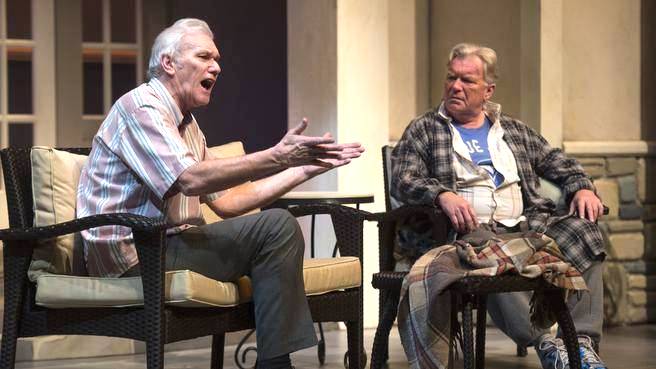
Foster’s seemingly boundless stamina can be attributed, in part, to the rigour of his routine.
“I get up in the morning early,” he told me when I asked about his daily writing habits, “at about five o’clock in the morning. And I start writing at about seven, eight. And I just write.”
Working straight through the afternoon, he constructs scenarios that are immediately recognizable to his countrywide base of loyal fans. For hours on end, he crafts natural-sounding dialogue that’s spoken by regular, everyday characters who, as he puts it, “write the play for him.”
By allowing the characters to speak and act for themselves rather than forcing them to follow a prescribed plan for each individual scene, Foster lets his characters navigate their own ways through the circumstances he’s established.
Even after more than 40 years of writing, he says he’s still taken aback by what his characters have to say. And by how funny they are.
“Sometimes,” he said, “I’ll just write a line and I’ll burst out laughing.” Foster is able to unlock the comedic potential of any given scene by staying true to the characters’ objectives, and by allowing even himself to be surprised by what comes out of their mouths.
“It’s like I didn’t say it; the character said it.”
Nobody writes a first draft like Norm Foster.
Emily Oriold, co-founder and artistic director of the Foster Festival
Foster is able to complete initial drafts of new plays at almost superhuman speed by surrendering to this kind of flow-state writing for the greater part of his working day. At the outset of his process, he has an idea of where the characters will wind up by the end, but how they get there is a process of daily discovery.
“When I first started writing,” he said, “I used to write out details of what happened in every scene. But the more confident I became, the more I just wing it.”
That’s another one of those statements that, to me, sounds a bit too modest to be true.
“Nobody writes a first draft like Norm Foster,” according to Emily Oriold, co-founder and artistic director of the Foster Festival in St. Catharines. “He’s got it down to a science.”
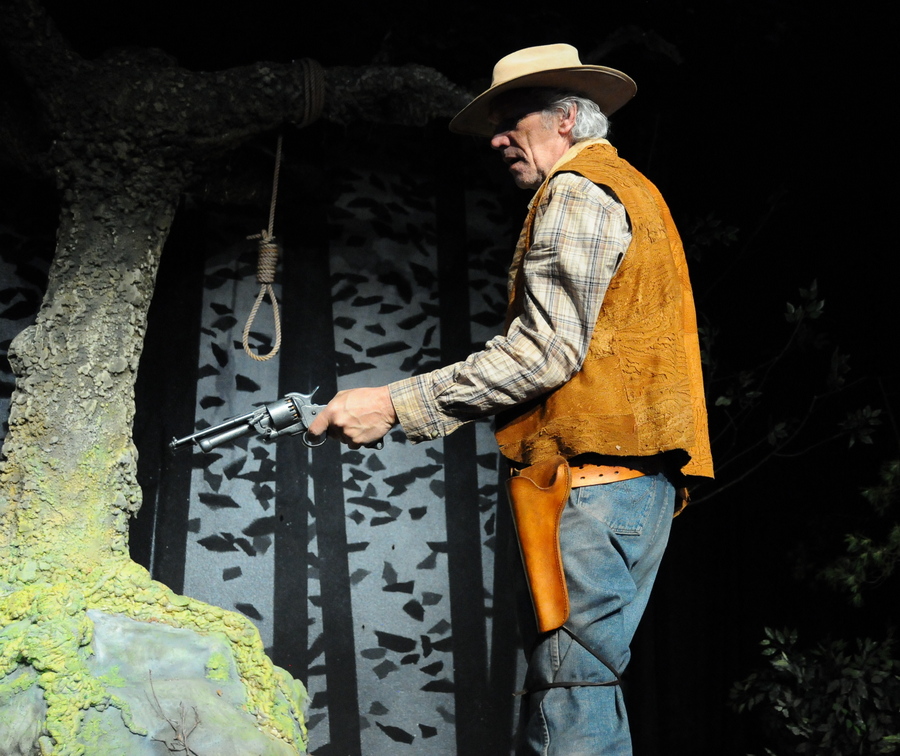
Growing up as a theatre kid in Blyth, Oriold first encountered Norm Foster when she saw the Blyth Festival’s 1997 production of his most famous work, The Melville Boys. Sitting in the theatre’s front row, Oriold became an instant Foster fan. The experience stayed with her throughout her time at theatre school and over the 10 or so years that followed, when she conceived and nurtured the idea of establishing an official Foster Festival.
“We’re not very good at celebrating our own in Canada,” said Oriold. “We should be celebrating the success of our Canadian artists.”
Few contemporary playwrights have enough creative output to sustain an entire festival devoted to their body of work. But since 2016, the Foster Festival has presented both the writer’s new plays and fan favourites to St. Catharines locals and summer tourists visiting the Niagara region.
As the co-founder and leader of an artistic institution devoted to sharing the work of one playwright with local audiences, Oriold has a clear mission. “Our goal,” she said, “is to make them feel better leaving than when they arrived. And I really believe that’s what his art does for people.”
Foster’s plays consistently accomplish this, and not just because of their inherent humour. In his plays, comedy almost always acts as a conduit to deeper, emotional content. What’s so impressive is that Foster can strike a fine balance between humour and heart without ever allowing his work to devolve into either shtick or melodrama. According to him, it’s important that his work “touches us somewhere other than the funny bone.”
“You don’t want to lay it on too thick,” he said. “You don’t want to bang the audience over the head with an idea or a feeling.”
Instead, Foster hopes the emotional resonance of his plays will sneak up on audiences so that they don’t even realize they’re being moved. He accomplishes this by writing with such relatability that audiences can discover themselves in his work.
“My plays are usually about small subjects,” he says, “like family or relationships, and not necessarily about solving the world’s problems.”
By centering his artistic focus on interpersonal rather than global conflicts, Foster creates easy points of access for audiences of all ages and walks of life. His plays are snapshots of extraordinary moments in the lives of ordinary people.
“They can see their neighbours onstage,” said Oriold, when describing the typical audience response to a Foster play. “They see their friends onstage, their family onstage, themselves onstage. And when that’s reflected back to them, it’s a wonderful shared experience with everybody else around.”
The accessibility of Foster’s work is precisely what’s given his plays their perennial appeal. It’s why Foster’s newer comedies are so frequently programmed at regional companies from coast to coast, and why his older plays continue to endure.
Case in point: this summer, Oriold is directing the Foster Festival’s new production of The Melville Boys — the very play that made her fall in love with Foster’s writing — to mark the 40th anniversary of its world premiere. “It’s full circle for me,” she said.
The term “accessible” can sometimes be used as a backhanded compliment by cosmopolitan critics. That doesn’t seem to faze Foster, who no longer pays attention to what they have to say about his work. “I used to,” he says, “but now I don’t because I think I’m better than them. Isn’t that horrible?”
(NB: No, it’s not.)
Perhaps a handful of Canadian playwrights (if that!) have ever been popular enough to become household names. But a recent experience at the Port Stanley Festival Theatre proved to playwright Mark Crawford just how far Foster’s name recognition extends.
It’s an amazing thing for any artist, especially in Canada, to achieve a sort of name recognition and the trust of an audience.
Mark Crawford, playwright
Before entering the theatre for yet another Foster play that was staged earlier this summer, Crawford (himself a nationally beloved writer of heartfelt, frequently produced comedies) overheard a fellow audience member delightedly react to seeing Foster’s name on the house program. When she realized who had written the play she was about to see, she exclaimed: “Oh, it’s Norm Foster! This’ll be good!”
“It’s an amazing thing,” said Crawford, “for any artist, especially in Canada, to achieve a sort of name recognition and the trust of an audience.”
“They know they’re going to have a good time,” he continued, “and they know that they’re taken care of by the writer. That’s an incredible, incredible achievement.”
When Crawford was a teenager, he borrowed his grandmother’s car and drove to the Victoria Playhouse Petrolia to experience Foster’s work for the first time. (Although, he admits, it’s entirely possible that he had already seen a Foster play at some community theatre or other and just not known it at the moment.) Since then, he has performed in one of Foster’s plays, Opening Night at Theatre Aquarius in 2007, and has seen a ton of his work.
“Norm’s writing is incredibly rhythmic,” Crawford shared. “He’s such a craftsman, in terms of comedy.”
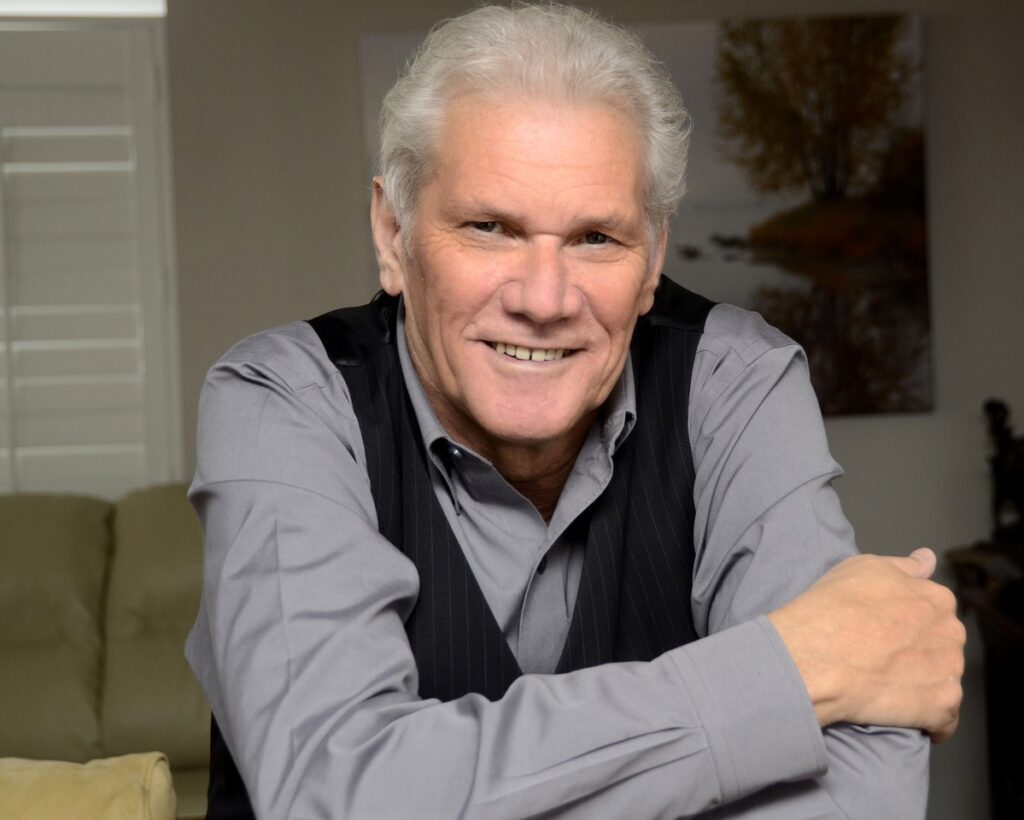
And while Foster may claim that the impeccable, comedic rhythm of his dialogue “just happens,” in truth, it’s the result of painstaking attention to detail, both at his writing desk and in workshops and rehearsals with actors. “I want it to sound the way people actually talk,” he said, “not stiff and stilted.”
I’m really proud that people want to see my work and want to see my new stuff. That makes me want to keep writing. Whenever I think, ‘Oh, maybe I’ve written my last play,’ I go, ‘No, I think I’ve got a few more in me. Let’s keep going.’
Norm Foster
Foster’s work has always been somewhat reflective of his own life experience. Some of his plays are more autobiographical than others, but the present moment often finds its way onto the page.
“I think there’s a little bit of me, obviously, in every play I write,” he says. “The older I get, I’m writing about more mature people.”
In this summer’s world premiere of Lakefront, audiences will encounter two such characters. Directed by frequent collaborator Jeffrey Wetsch, the new play is about two senior singles who barely know one another, but decide to take a risk and run off together for a naughty weekend getaway.
Lakefront has a premise that’s representative of everything audiences have come to expect from a classic Norm Foster play. Like so many of the comedies he’s written throughout his impressive career, Foster’s newest work will hinge on recognizable, everyday characters finding their ways through out-of-the-ordinary circumstances with untold potential for laughs.
And, like he does time and time again, Norm Foster will make his earnest, exacting craftsmanship look effortless.
“I’m really proud that people want to see my work and want to see my new stuff,” said Foster. “That makes me want to keep writing. Whenever I think, ‘Oh, maybe I’ve written my last play,’ I go, ‘No, I think I’ve got a few more in me. Let’s keep going.’”
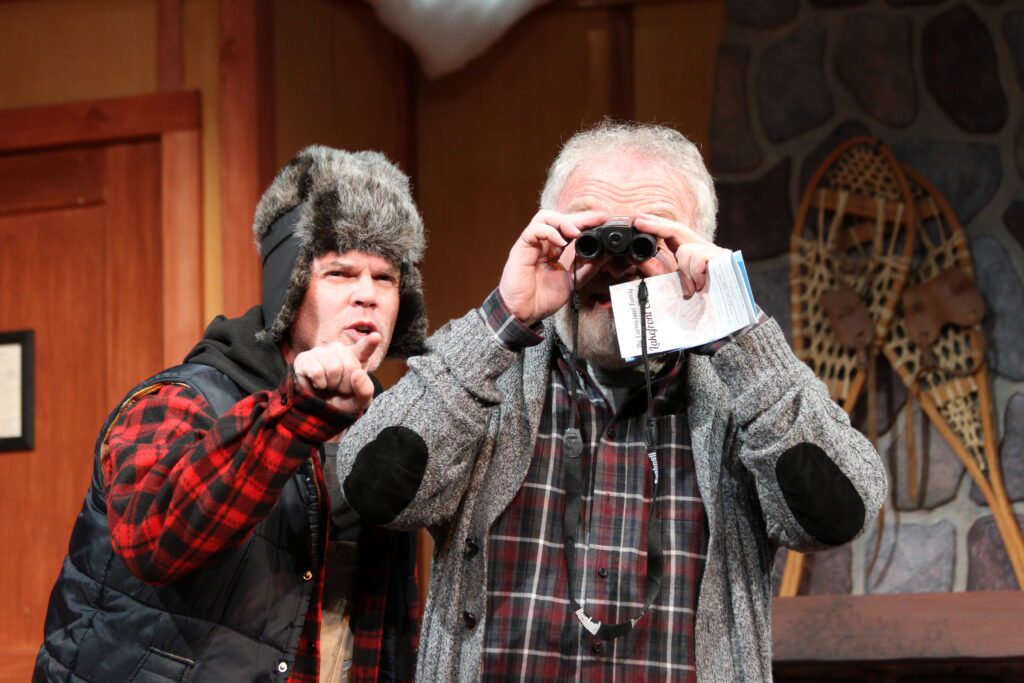
Lakefront runs at Lighthouse Festival Theatre until September 7 in Port Dover and from September 11-22 in Port Colborne. Tickets are available here.








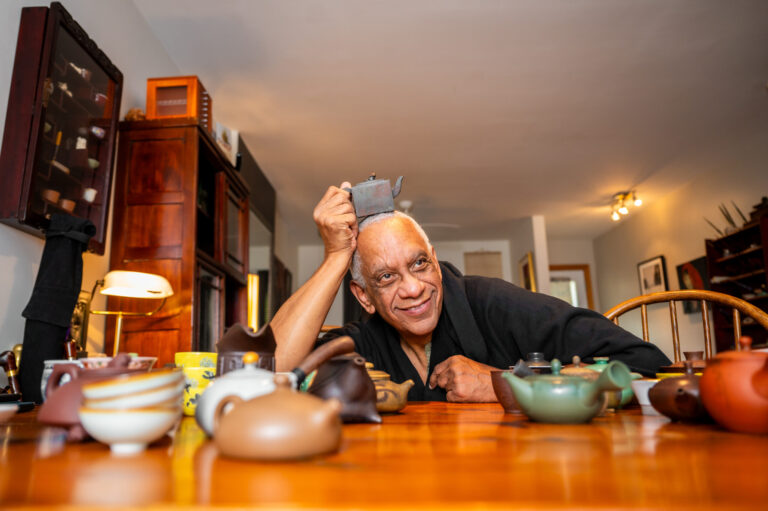


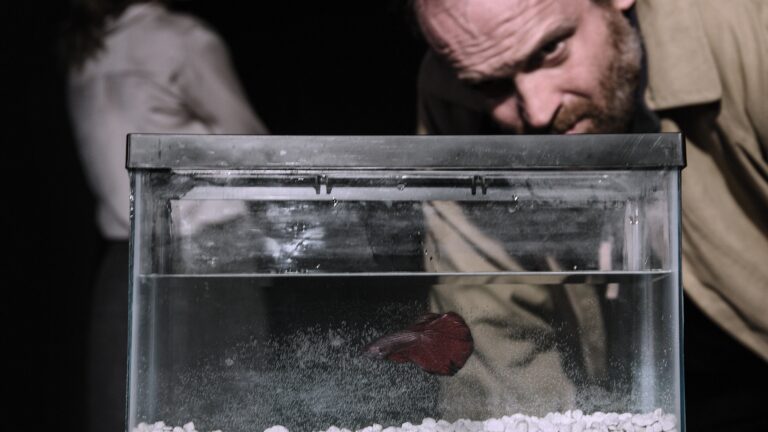
I am thrilled when a play being presented is a Norm Foster play…it’s a given that it’s going to be good! His plays just ‘work’ in every area of believability…and I love his humour!